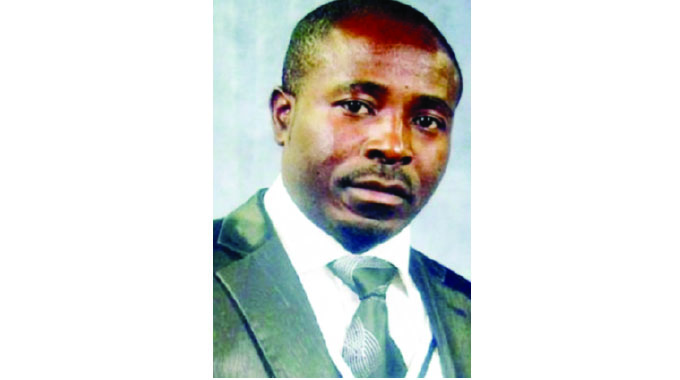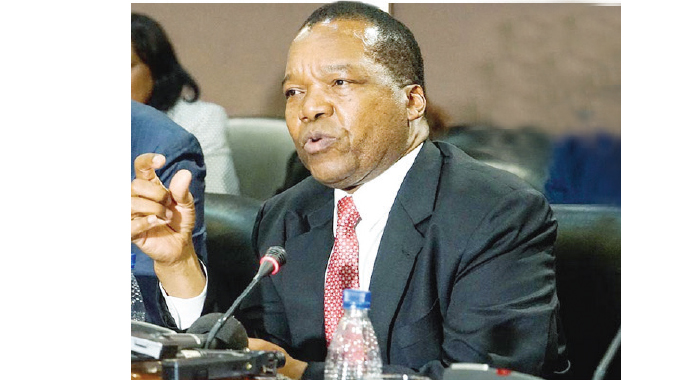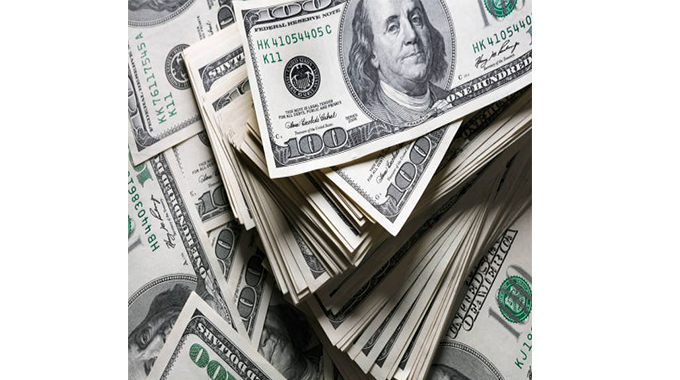Businesses sabotage Government stability policies

Nqobile Bhebhe, [email protected]
“. . . Maybe time has come for outlets, who disable point of sale gadgets to force US$ use to suspend trading until they are able to handle transactions in multi-currency, as is bade by our laws,” reads in part President Mnangagwa’s weekly column in our sister publication Sunday News.
“We even wonder if at all we are dealing with businesses anymore or with the politicians disguised as company executives seeking a political upset.
Equally, politicians seeking to engineer market failures for definite political outcomes will be dealt with as political opponents and through rules of appropriate politics.”

President Mnangagwa
This was in reference to the recent widely condemned spate of uncouth business practices by some traders in both the formal and informal sector, for demanding payment for goods and services exclusively in foreign currency, a practice that violates the dual currency regulations and is leading to artificial shortages of some items in shops.
Some retailers are even switching off point of sale machines in an attempt to force customers to purchase in forex.
Government is on record calling upon producers and traders to embrace fair business practices and treat their customers with dignity in line with the provisions of the Consumer Protection Act.
It was never a trade secret that basic commodities are readily available on the streets with vendors selling in foreign currency.

Consumer Protection Act
It was also not a well-guarded secret that some manufacturers were selling to informal traders in foreign currency owing to the depreciation of the local currency against the greenback.
Locally manufactured products ranging from cooking oil, fresh milk and sugar among other goods are readily available at informal traders’ so-called tuckshops, that sell in foreign currency.
However, what became increasingly alarming in recent weeks was the exorbitant prices in local currency and in some instances in forex in formal retail outlets.
Some businesses are now demanding forex, switching off point of sale machines.
The practice has drawn condemnation from captains of industry who have called for swift and decisive punitive action.
For instance, Confederation of Zimbabwe Retailers (CZR) president Dr Denford Mutashu said they note with sadness the rampant speculative and forward pricing taking centre stage on the local market which has massively eroded consumer purchasing power.
CZR cautioned retailers and wholesalers to be careful as consumers cannot suffer at the hands of any business establishment.
Dr Mutashu made reference to economic sabotage, hinting that the practice is influenced by some unscrupulous businesspeople in an attempt to sabotage the Government ahead of the general elections.

“It has also been noted that some sector players and related economic agents are withdrawing POS machines from customers that wish to pay in ZWL and this smacks economic sabotage and the consequences are likely going to be severe if law enforcement pounces on anyone found wanting,” said Dr Mutashu.
According to Dr Mutashu, the insatiable appetite for the USD and shunning of the local ZWL which has created a market failure calls for a thorough forensic probe on some manufacturers who are abusing the foreign currency exchange system.
Since its inception in 2020, the auction system has availed cheaper foreign currency to companies for retooling and purchase of raw materials among others.
But the noble gesture and an array of Government economic measures to boost the economy are being abused.
“It is also critical for the Government to set up an inter-agency committee to investigate companies that accessed forex and make each one of them account for the last dollar,” suggested Dr Mutashu.
Government has in recent weeks introduced a cocktail of measures to restore stability such as the suspension of duty on the importation of basic goods, 100 percent retention on domestic sales in foreign currency starting this month, and fine-tuning the Foreign Exchange Auction System, among others.

Dr John Mangudya
Economists have been calling on the central bank to fine-tune the auction system stressing the need for the platform to be effective and efficient so that it continues to benefit the productive sector.
Reserve Bank of Zimbabwe Governor, Dr John Mangudya said the opening up of the importation of certain basic commodities will have a huge bearing on the prices locally.
He warned errant businesses that are accessing foreign currency from the auction system and spin it on the black market with the sole aim of purchasing some products using the local currency for resale on the black market at exorbitant US dollars.
President Mnangagwa rightly observed that the Second Republic has pursued a prudent fiscal and monetary policy to guarantee macroeconomic stability.
The Government budget has run on a cash basis, thus avoiding un-budgeted overruns, he wrote.
“This has never been so before, including under the much-vaunted Government of National Unity (GNU). Because of this fiscal discipline, often pursued even at the expense of social delivery, space has since been created for businesses to grow in a stable environment where disequilibria are minimised. Indeed, this has been the case until now,” he wrote.

However, with recent events, businesses seem to be on an agenda to sabotage the Government.
President Mnangagwa said it was curious that despite 80 percent of transactions being in foreign currency, with businesses allowed to retain most of it, demand for foreign currency on the foreign currency auction — which has allocated US$4 billion since it was launched in 2020 — has risen, yet production in the sector has remained the same.
“Fourth and most exasperatingly, when 20 percent of our transactions were conducted in foreign currency, and 80 percent in local currency, the demand for foreign exchange at the auction averaged US$20 million weekly.
“Today, when we find ourselves in 80-20 percent reverse transaction equation in favour of foreign currency, the demand for foreign exchange at the same auction, and by the same businesses now directly selling more wares in United States dollars, has risen to US$30 million a week! How does one explain such a paradox?”
It is suspicious that the unfair business practices coincide with the Government’s spirited and noble move to address the country’s domestic and international debt.
The country’s total debt stands at US$17,5 billion with debt owed to international creditors at US$14,04 billion, while domestic debt stands at US$3,4 billion.
Debt owed to bilateral creditors is estimated at US$5,75 billion, while debt to multilateral creditors is estimated at US$2,5 billion.
It is critical for everyone, the business sector included, to embrace and support the debt resolution agenda and build a nation as a united force.
In his column, the President warned such businesses that he will not hesitate to withdraw several concessions extended to them if they continue working against the principles of harmony.
“Let me say that we made all the above concessions in good faith, and in the belief that we have a responsible business sector whose sole purpose is to manufacture and sell goods and services in the marketplace.
Yet it is becoming increasingly clear our trust is getting abused and even betrayed,” he said.
There is an urgent need for the business sector to come to its senses and put an end to unethical practices of suffocating consumers.












Comments